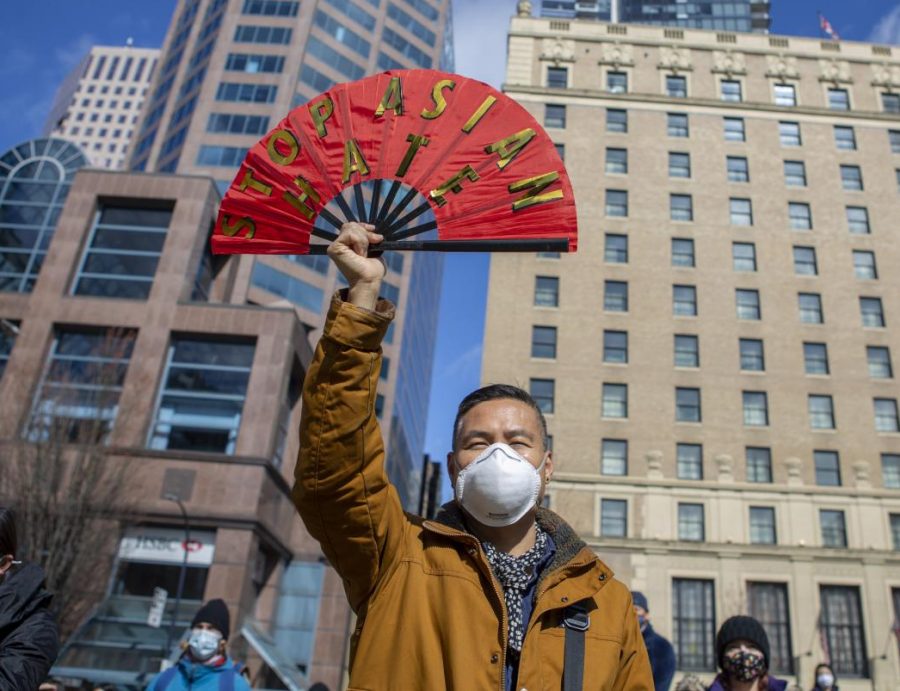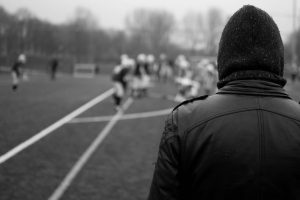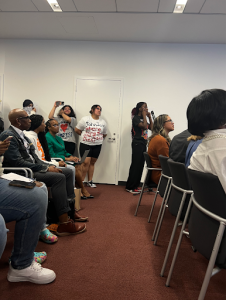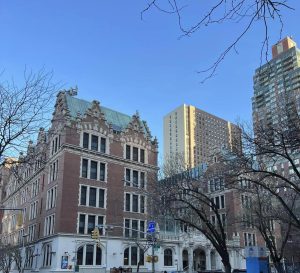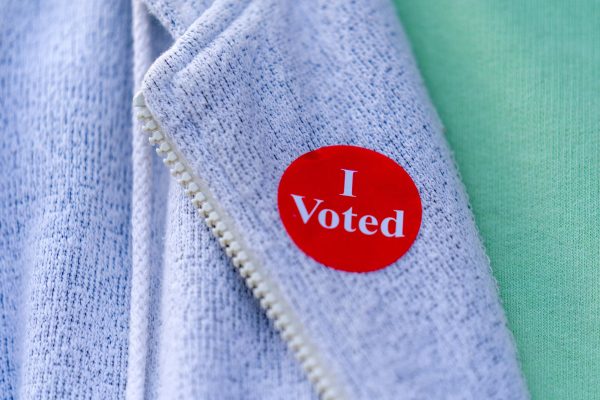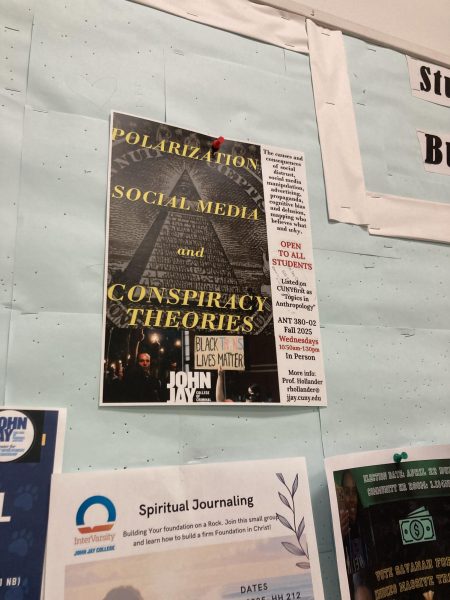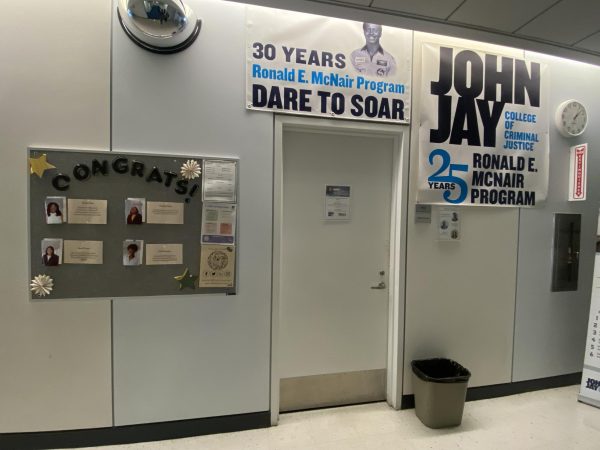#StopAsianHate Movement: The Silver Lining to a ‘Bad Day’ Shooting
April 27, 2021
Stop Asian Hate is more than a hashtag—it became a universal reality check now over a month after a shooting spree in the Atlanta area.
Every day Americans and members of the Asian American Pacific Islander community grieve the loss of the eight victims killed on Tuesday, March 16. Students and representatives of the college react as news hit that six of the victims were Asian women.
Those killed include a single mother supporting her two sons in college and a couple on a spa date as patrons.
“He had a really bad day,” said Captain Jay Baker of the Atlanta Police Department during a press conference following the shooting, on behalf of gunman Robert Aaron Long.
The internet found that law enforcement failed to represent the victims’ families in Cherokee County, Georgia.
“There are two sides to a story, I’m not able to know the person’s intention for their action,” said Jones Tian, a junior. “It could be racism, or it could be my projection of it being racist.”
The Cherokee County Sheriff’s Department claimed that Long sought to battle his sexual temptations by suicide; however, he instead attacked the local establishments that challenged his addiction against his religious beliefs.
To this day, the shooting has not been considered a hate crime.
Asian fetishization is the sexual desire for those of East, South-East, and South Asian descent. Considering the history of Long’s troubling habits, the concept is in question to the crime based on misogyny and an added layer of racism.
Although not part of the AAPI community, Nelson Valladares, the President of the Korean Student Association Club at John Jay College, provided his thoughts on the issue.
“[Asian fetishization] creates a negative stigma around people like me who show interest in any Asian culture,” said Valladares. “People will assume I fetishize Asian people because I like Korean culture; liking an Asian culture and fetishizing Asian people are two completely different things.”
Asian Americans have endured racism before the current anti-Asian hate movement continuing to wax in the media.
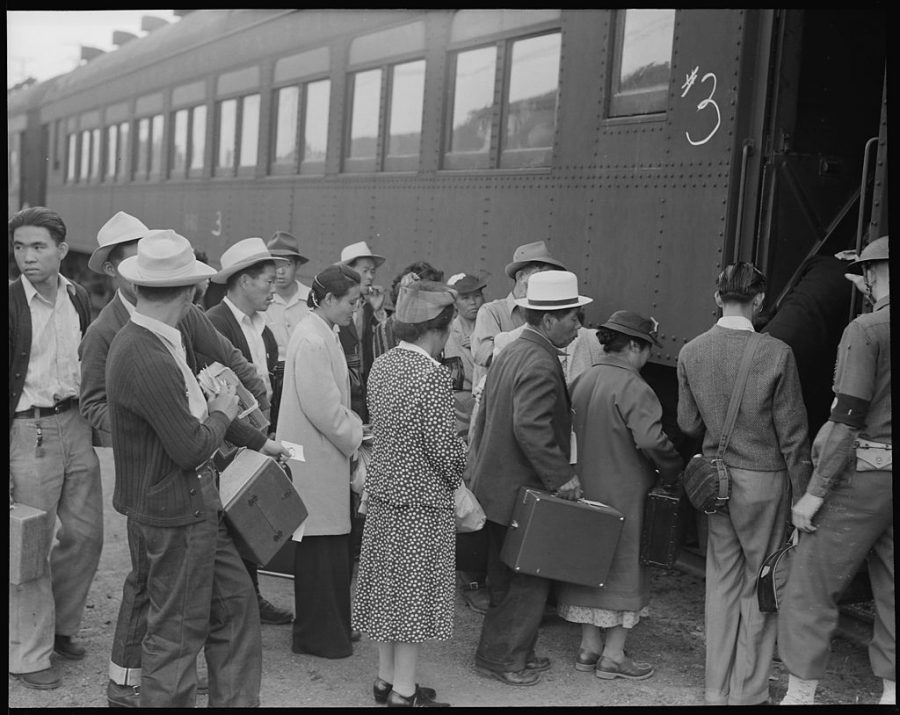
During the Second World War, the most historical recollection of Asian animosity included Japanese-Americans in the thousands who were forced to Japanese Internment camps post the Pearl Harbor attack; under President Franklin D. Roosevelt.
The act entitled, Executive Order 9066 during the Nazi regime held an insufficient number of German nationals placed in recollection camps under the Department of Justice.
With historical examples and Hollywood’s glamorizing world, certain tropes and stereotypes continue to tie to the Asian-American identity; that is without a leader to hold society accountable.
“I believe our community hasn’t been as vocal or had a public figure to represent us to have the platform needed to speak on,” said Tian. “As a result, it gets ignored.”
Notable actors such as Bruce Lee and Jet Li starred in martial art films in the 70s, becoming household names. Popularity grew for series such as ‘The Karate Kid’ and ‘Kill Bill,’ reinforcing that “all Asians know martial arts” character mold.
Type-casting and generalizing Asian labels transitioned to the growing popularity amongst other subcultures, including anime, fashion, and in modern times Kpop. However, the racism behind progressive acceptance has been undeniably apparent.
The idea that “all Asians are smart” or “the model minority” could be seen as a positive expectation, however, with an underlying negative connotation.

Fiona Ji-hoo Kim, junior at John Jay and a former professional figure skater recalls her ice skating at the national level.
“The challenge for me as an Asian figure skater was living up to the expectations because ‘all Asian figure skaters are highly skilled’ and disappointing [others] when I wasn’t up to par,” said Kim.
The complexity behind ruling whether the motive included race is due to the Asian population falling under the “model minority” myth. Asians are seen as intelligent, hardworking, and favorable, amplifying the American dream. The myth, however, creates colorblindness against the community when crimes arise in the media.
The incorrigible acts towards Asians and Asian-Americans have been growing in numbers since the pandemic in March 2020. Police officers have seen increasing reports of crimes throughout the nation, with racist verbal affirmations including “Chinese virus” and “Kung flu,” popularly used by erstwhile President Trump amidst the start of Covid.
Before the Atlanta shooting, Anti-Asian and xenophobic hate crimes, as tracked by The New York Times, range from vandalism that writes, “stop eating dogs” to a Buddist temple burnt to the ground in Little Tokoyo Los Angelos.
“It aches my heart, and I feel deep sorrow. John Jay students can show their support through donations and signing petitions to the AAPI organizations,” said Valladares. “If you can’t or don’t want to do any of those, even just sharing or showing awareness through social media helps.”


